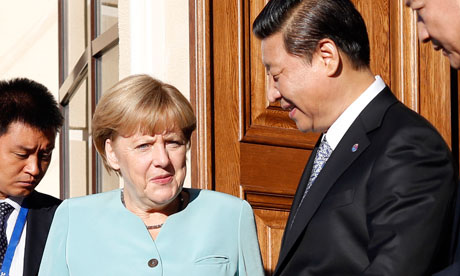They killed themselves and two tourists on Monday in the square, the heart of China's power structure and the focal point of the mass 1989 pro-democracy demonstrations brutally crushed the military.
Police have spread a dragnet across the capital, checking hotels and vehicles, seeking two people suspected to be ethnic Uighurs, a Muslim minority from Xinjiang in China's far west, on the borders of ex-Soviet Central Asia.
Two senior sources said on Tuesday the crash, that also injured 38 bystanders at perhaps the most closely guarded location in China, was suspected of being a suicide attack carried out by people from Xinjiang. It was initially believed to be an accident.
The sources did not specifically say the occupants were Uighurs, many of whom chafe at Chinese controls on their culture and religion.
"It looks like a pre-meditated suicide attack," said a source with direct knowledge of the matter, speaking on condition of anonymity to avoid repercussions for talking to the foreign media.
There have been suicide bombings before in China, and in Beijing, mostly by people will personal grievances, but none have targetted the very heart of China's government like this appears to have.
China has blamed Uighur separatists and religious extremists for a series of attacks in Xinjiang, saying they want to establish an independent state called East Turkestan. Rights groups and exiles say China massively over-states the threat.
In 2009, nearly 200 people were killed in clashes between Uighurs and ethnic Chinese in Urumqi, the capital of Xinjiang.
But the unrest has never before spilled over into the nation's capital, despite speculation in 1997 that Uighurs were to blame for a Beijing bus bomb in which at least two people died.
Uighurs are also not known to have previously carried out any suicide attacks.
The government has given no official word whether it was an accident or an attack, and state media has mostly kept to reporting brief statements from the police and official Xinhua news agency giving a bare bones account of what happened, as is common for such sensitive events.
Police are still investigating and have yet to determine the identities of the three people in the sport utility vehicle but suspect they are from Xinjiang, according to the sources. The other dead were a Chinese man and a Filipina woman, both tourists.
"IT WAS NO ACCIDENT"
However, Beijing police said late on Monday they were looking for two suspects from Xinjiang in connection with a "major incident", though it was unclear if these were the people who were in the vehicle or accomplices still at large.
The sources said that the occupants were suspected of lighting a flammable substance in the vehicle.
"It was no accident. The jeep knocked down barricades and rammed into pedestrians. The three men had no plans to flee from the scene," said a source who has ties to the leadership.
A Reuters reporter at the scene at the time said he did not hear any gunshots.
On Monday night, hours after the fire, Beijing police issued a notice asking local hotels about suspicious guests who had checked in since Oct 1 and named two suspects it said were from Xinjiang. Four hotels told Reuters they had received the notice.
Judging by their names, the suspects appeared to be ethnic Uighurs.
"To prevent the suspected persons and vehicles from committing further crimes ... please notify law enforcement of any discovery of clues regarding these suspects and the vehicles," said the notice, which was widely circulated on Chinese microblogs.
Beijing police, contacted by telephone, declined to comment. On Monday, the police said on their official microblog only that they were investigating the accident, and did not say if they thought it was an attack.
Calls to the Xinjiang government went unanswered.
Barry Sautman, a political scientist at the Hong Kong University of Science and Technology who has studied Xinjiang, said if it was confirmed that it was a suicide attack by Uighurs, it would be a first.
"Certainly there have been a lot of bombings carried out by Uighur groups, but none of them as far as I know have involved suicide," he said.
Ilham Tohti, a China-based ethnic Uighur economist and longtime critic of Chinese policy in Xinjiang, said Uighurs had been driven to take extreme measures by China's repression.
"The use of violent means happens because all other outlets for expression are gone. Uighurs do not have any representation, they have no means of self-expression," he told Reuters.
IN FRONT OF MAO'S PORTRAIT
Police said on Monday the sport utility vehicle veered off the road at the north of the square, crossed the barriers and caught fire almost directly in front of the main entrance of the Forbidden City, in front of a huge portrait of the founder of Communist China, Mao Zedong.
Pictures seen by Reuters showed that the vehicle appeared to have driven several hundred metres (feet) along the pedestrian pavement in front of the Forbidden City entrance before bursting into flames, knocking down people as it went.
One eyewitness, who asked not to be identified due to the incident's sensitive nature, said she saw the vehicle knock down three or four people, and that it had a white banner with black lettering on it streaming from the back.
"People started to panic, and all ran to hide in the toilet," she said. "Three or four minutes later I came out and could see black smoke, and the police had begun to clear people out."
While censors moved quickly to remove pictures of the incident from the popular Twitter-like service Sina Weibo, as often happens in stability-obsessed China, many images and accounts are still viewable a day after the event.
Beijing police stepped up checks on cars around the city in response to the incident, one police officer at a checkpoint on the border between Beijing and Hebei province told Reuters.
A state newspaper reported in July that the government suspected Syrian opposition forces were training extremists from Xinjiang to carry out attacks in China.
"They have been known to carry out attacks outside of Xinjiang," said Yang Shu, a terrorism expert at China's Lanzhou University.
"There have also been reports that East Turkestan elements have received training in Syria, so I would say the possibility does exist of a Xinjiang connection," he added.
China denies mistreating any of its minority groups, saying they are guaranteed wide-ranging religious and cultural freedoms.
Many rights groups say China has long overplayed the threat posed to justify its tough controls in energy-rich Xinjiang, which lies strategically on the borders of Central Asia, India and Pakistan.

 Authorities in a Tibetan-populated county in northwestern China’s Qinghai province have dismissed three village leaders from their posts following area protests and ahead of plans to force villagers to fly the Chinese national flag from their homes, Tibetan sources say.
Authorities in a Tibetan-populated county in northwestern China’s Qinghai province have dismissed three village leaders from their posts following area protests and ahead of plans to force villagers to fly the Chinese national flag from their homes, Tibetan sources say. 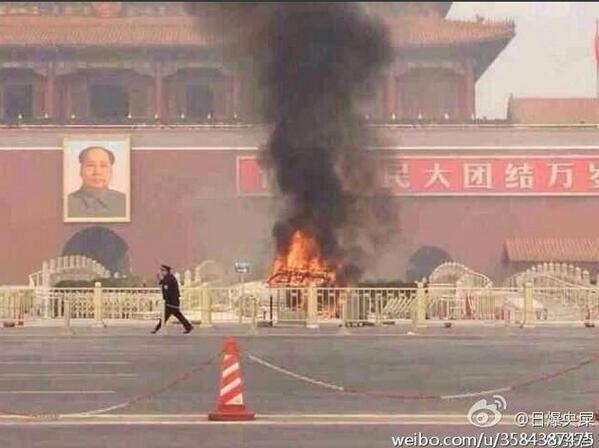

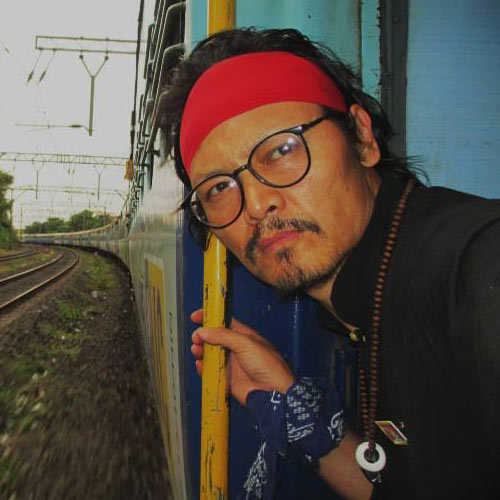
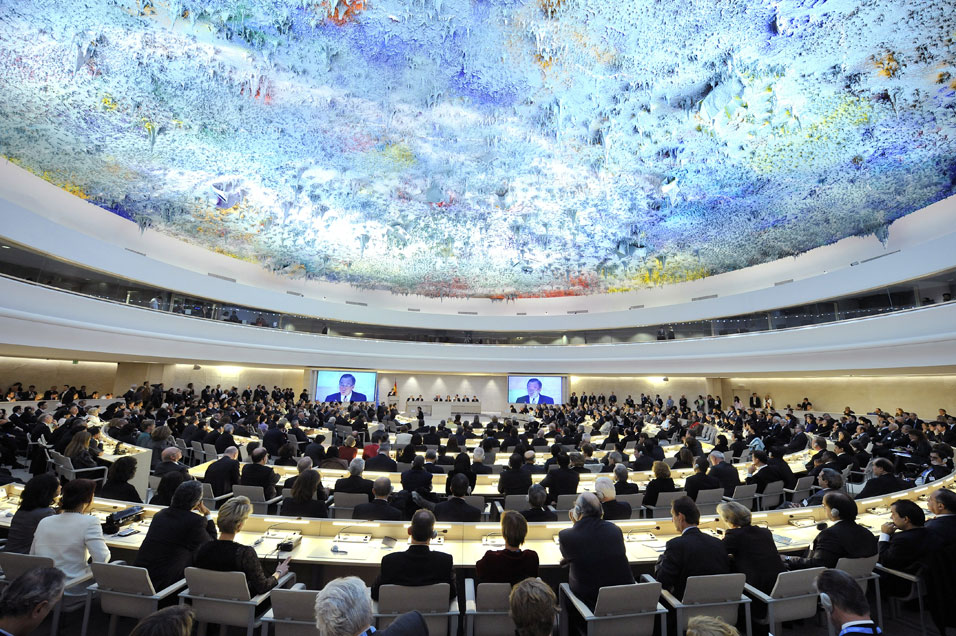 Eleven countries spoe up to urge China to improve the human rights of Tibetans at the UN Human Rights Council in Geneva on October 22. The delegates cited the lack of religious freedom, minority rights, and access of UN officials to Tibet, and called on China to resume dialogue with the Dalai Lama, during oral questioning at the second Universal Periodic Review (UPR) of China’s human rights record.
Eleven countries spoe up to urge China to improve the human rights of Tibetans at the UN Human Rights Council in Geneva on October 22. The delegates cited the lack of religious freedom, minority rights, and access of UN officials to Tibet, and called on China to resume dialogue with the Dalai Lama, during oral questioning at the second Universal Periodic Review (UPR) of China’s human rights record. GENEVA -- Faced with a UN review of its human rights, China acknowledged Tuesday that it still faces shortcomings but insists it has reduced poverty, deepened judicial reforms and protections of ethnic minorities.
GENEVA -- Faced with a UN review of its human rights, China acknowledged Tuesday that it still faces shortcomings but insists it has reduced poverty, deepened judicial reforms and protections of ethnic minorities. BEIJING: China on Tuesday blamed Tibetan spiritual leader the Dalai Lama and his supporters for creating border problems between India and China.
BEIJING: China on Tuesday blamed Tibetan spiritual leader the Dalai Lama and his supporters for creating border problems between India and China.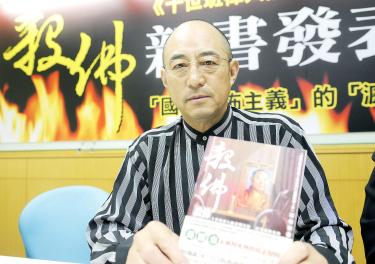 The 10th Panchen Lama was murdered by former Chinese president Hu Jintao (胡錦濤) and former Chinese premier Wen Jiabao (溫家寶), a prominent Chinese dissident said in Taipei yesterday as he warned that Beijing’s cultural genocide in Tibet could serve an example for those Taiwanese who still have false expectations of China.
The 10th Panchen Lama was murdered by former Chinese president Hu Jintao (胡錦濤) and former Chinese premier Wen Jiabao (溫家寶), a prominent Chinese dissident said in Taipei yesterday as he warned that Beijing’s cultural genocide in Tibet could serve an example for those Taiwanese who still have false expectations of China. This is the first time China's record is being examined under President Xi Jinping
This is the first time China's record is being examined under President Xi Jinping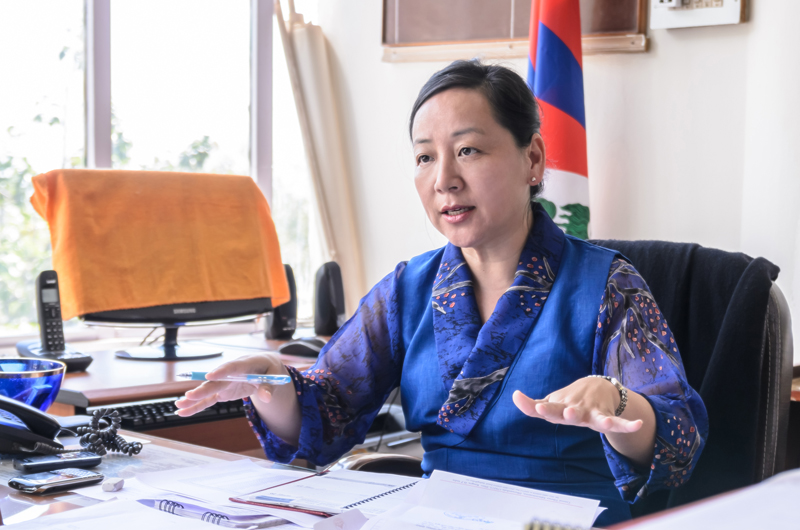 Dharamshala: In response to the Chinese Government 'White Paper', the Tibetan Administration on Wednesday said the massive wave of self-immolation protests against Chinese rule is sending an "unequivocal" political message to the world about the failed policies in Tibet.
Dharamshala: In response to the Chinese Government 'White Paper', the Tibetan Administration on Wednesday said the massive wave of self-immolation protests against Chinese rule is sending an "unequivocal" political message to the world about the failed policies in Tibet.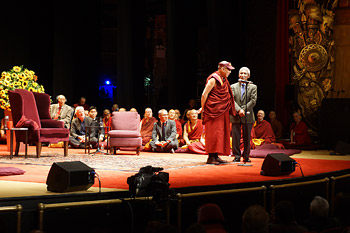 DHARAMSHALA: Reiterating that Tibetans do not seek separation from China, His Holiness the Dalai Lama has expressed hope that the new Chinese leadership will use common sense and follow Deng Xiaoping’s wisdom of seeking truth from facts.
DHARAMSHALA: Reiterating that Tibetans do not seek separation from China, His Holiness the Dalai Lama has expressed hope that the new Chinese leadership will use common sense and follow Deng Xiaoping’s wisdom of seeking truth from facts. Beijing: A senior Chinese official has denounced the Dalai Lama's long-standing pursuit of autonomy for Tibet, describing it as equivalent to advocating Tibetan independence, state media said on Saturday.
Beijing: A senior Chinese official has denounced the Dalai Lama's long-standing pursuit of autonomy for Tibet, describing it as equivalent to advocating Tibetan independence, state media said on Saturday. Mexico City, Mexico 14 October 2013 - His Holiness the Dalai Lama began a final busy day in Mexico City by giving an interview to Adela Micha of Televisa. She began by telling her viewers that she was speaking in person to the Dalai Lama and asked him how he sees himself, to which he answered: "As just another human being."
Mexico City, Mexico 14 October 2013 - His Holiness the Dalai Lama began a final busy day in Mexico City by giving an interview to Adela Micha of Televisa. She began by telling her viewers that she was speaking in person to the Dalai Lama and asked him how he sees himself, to which he answered: "As just another human being."

 Residents of a Tibetan township in western China’s Qinghai province are refusing demands by authorities to fly the Chinese national flag from their homes after deadly protests against similar orders swept a county in the neighboring Tibet Autonomous Region (TAR) earlier this month, sources said.
Residents of a Tibetan township in western China’s Qinghai province are refusing demands by authorities to fly the Chinese national flag from their homes after deadly protests against similar orders swept a county in the neighboring Tibet Autonomous Region (TAR) earlier this month, sources said. Chinese security forces have shot dead four Tibetan villagers and wounded 50 others in a continuing crackdown on protests in a Tibetan county opposing a government campaign of forced displays of loyalty to the Chinese state, sources said.
Chinese security forces have shot dead four Tibetan villagers and wounded 50 others in a continuing crackdown on protests in a Tibetan county opposing a government campaign of forced displays of loyalty to the Chinese state, sources said.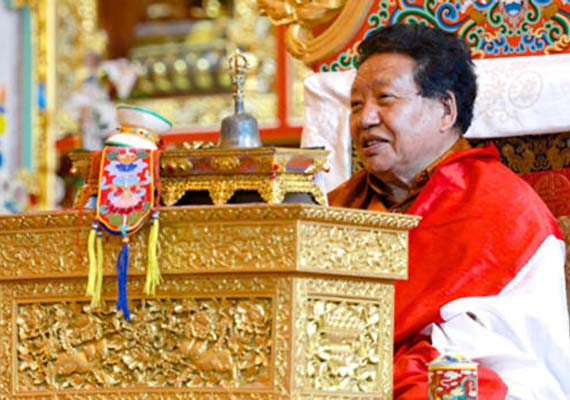
 Spain’s National Court has agreed to hear charges of genocide against former Chinese President Hu Jintao.
Spain’s National Court has agreed to hear charges of genocide against former Chinese President Hu Jintao.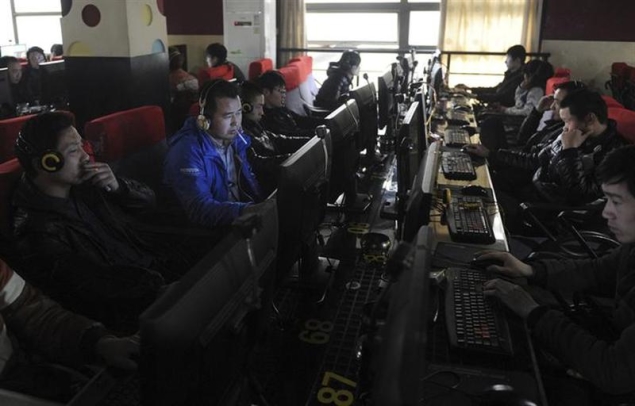 China is employing two million people to keep tabs on people's Internet use, according to state media, in a rare glimpse into the secret world of Beijing's vast online surveillance operation.
China is employing two million people to keep tabs on people's Internet use, according to state media, in a rare glimpse into the secret world of Beijing's vast online surveillance operation.
 BEIJING: A US-backed broadcaster says Chinese security forces fired into a crowd of
BEIJING: A US-backed broadcaster says Chinese security forces fired into a crowd of  One of China's creepier policies in the Tibetan Autonomous Region is a 2011 initiative known as the "
One of China's creepier policies in the Tibetan Autonomous Region is a 2011 initiative known as the "